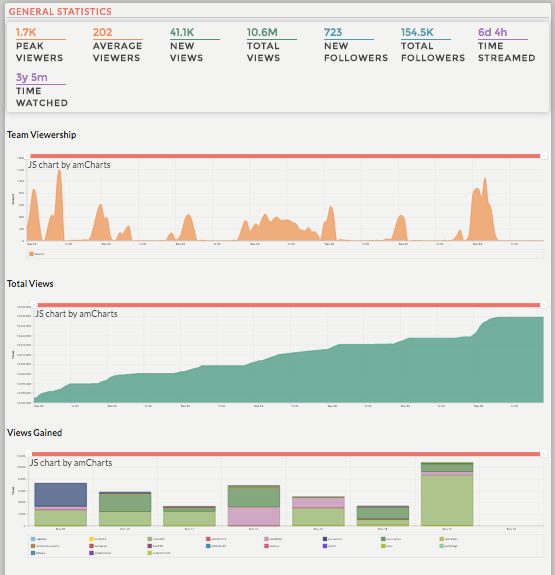Data Science Internship @Stream Hatchet

Since July 2016, I have been working as a part time data science intern for a small startup called Stream Hatchet in Barcelona, Spain. Stream Hatchet is a web-based application that provides real-time statistics and historical data analytics from the leading video platform and community for gamers – Twitch. More than 45 million gamers gather every month on Twitch to broadcast, watch and chat. It has 9.7 million active daily users and 2+ million unique streamers per month.
Stream Hatchet was founded by three friends, who loved playing video games, and became one of the first fans of Twitch in Europe. The guys’ aim was to provide meaningful insights for streamers about their performance with live tracking. At the beginning they did not think about eSport as a rapidly growing business and never thought that their solution could be crucial for gamers who rely on streaming. So Stream Hatchet was free.
Few months ago the guys recognized how valuable their system is. Its user base reached more than 7,000 active streamers, and more and more requests arrived in their mailbox about potential upgrades. So the time came when the business model had to change - Stream Hatchet went freemium, and now there are three subscription options available.

As a data science intern my most important role is to support this transition with the power of data. I'm analyzing current users’ activity, supporting data driven marketing decisions, conducting market research, contributing to mapping and data mining projects to make Stream Hatchet’s pro and business models more valuable. Above all, I'm trying to take part in PR, writing data stories for our blog. Right now I am working on a Twitter and Twitch based marketing campaign, where we identify influential streamers based on their network position to be the ambassadors of the new products.

Unfortunately, my internship ends soon, and I’ll be flying back to cold Budapest to play with another dataset more related to my thesis. This awesome internship could not have been possible without the generous help of the Erasmus Mundus Scholarship and the support of my supervisor Balázs Vedres.